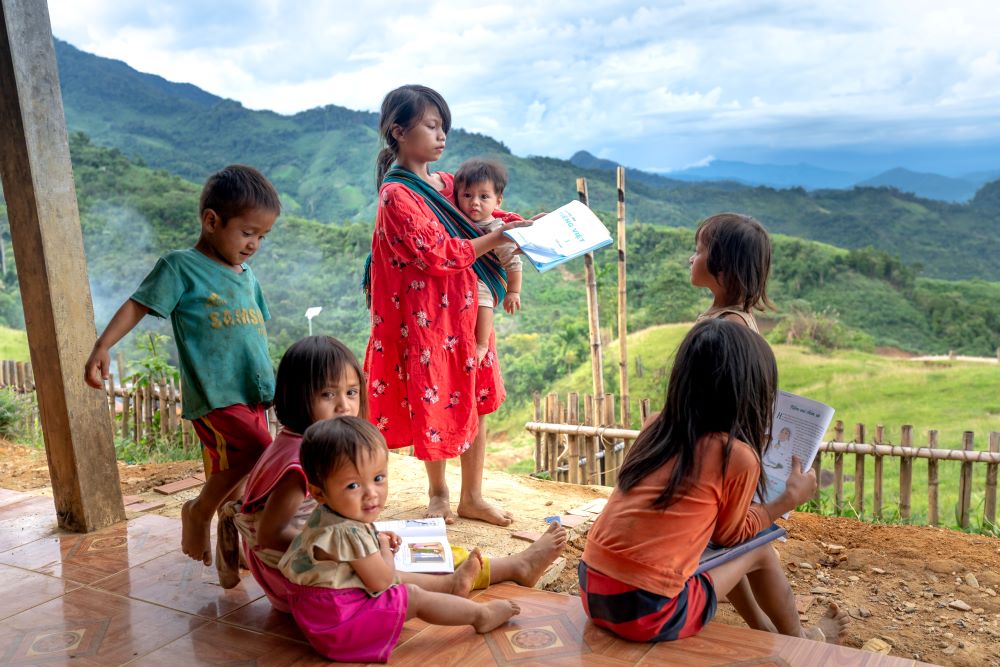
Education is the key to empowerment and progress, enabling individuals to unlock their full potential and contribute meaningfully to society. Sadly, across the globe, several obstacles hinder girl child education. This article explores the importance of girl education, the significant challenges girls face in accessing education, and potential solutions to overcome them.
Gender Bias and Stereotypes:
Traditional gender roles and biases often limit educational opportunities for girls. The notion that girls should focus on household chores or early marriages hampers their access to education. To combat this, society must challenge these stereotypes and promote gender equality, emphasizing that education is a fundamental right for all.
Poverty and Economic Barriers:
Poverty remains a significant impediment to girls’ education, especially in developing countries. High schooling costs, including fees, uniforms, books, and transportation, burden families struggling to meet these needs. Governments and NGOs should implement scholarship programs, provide financial assistance, and ensure the availability of affordable or accessible education to bridge this gap.
Lack of Access to Schools for Girl Child Education:
In remote areas, lack of schools or long distances from home to educational institutions pose immense challenges for girls. To address this, governments must prioritise the establishment of schools in underserved areas, ensure safe transportation facilities, and promote the use of technology to facilitate distance learning.
Safety and Security Concerns:
Girls face safety concerns while travelling to and from school, particularly in areas with high crime rates or instances of harassment. Creating a safe environment is crucial to encourage girls’ enrollment and attendance. Implementing increased security personnel, safe transportation, and awareness campaigns can help mitigate these risks.

Early Marriage and Child Labor:
Forced early marriages and child labour deprive countless girls of their right to education. Raising awareness about the importance of education, enacting stricter laws against child marriage, and providing alternative income-generating opportunities for families can help combat this issue.
Lack of Female Teachers and Role Models:
The absence of female teachers and role models in schools can discourage girls from pursuing education. It is essential to encourage and support women in pursuing teaching careers. Successful women’s mentoring programs and guest lectures can inspire girls to overcome societal barriers and strive for education.
Menstrual Health and Hygiene:
The lack of proper sanitation facilities and access to menstrual hygiene products often leads to absenteeism among girls during menstruation. Ensuring the availability of clean and private toilets, promoting menstrual health education, and providing affordable sanitary products are vital steps toward ensuring girls can attend school without interruption.
Discrimination and Violence:
Discrimination and violence against girls within educational settings can hinder their academic progress. Schools must have strict anti-discrimination policies and provide students with a safe and inclusive environment. Regular awareness programs on gender equality, respectful behaviour, and conflict resolution can help foster a conducive learning atmosphere.
Limited Curriculum and Vocational Options for Girl Child Education:
Sometimes, the curriculum needs to address girls’ unique needs and aspirations. Expanding the curriculum to include subjects that promote gender equality, life skills, and vocational training can empower girls to pursue diverse career paths and become financially independent.
Lack of Parental Support and Awareness:
In many communities, parental support for girls’ education needs to be improved due to cultural norms or misconceptions about the benefits of education. Conducting community awareness campaigns, involving parents in school activities, and highlighting success stories of educated girls can change mindsets and encourage parental involvement in their daughters’ education.
The importance of girl education is crucial for societal change. Education is the most powerful tool that can break the cycle of poverty and transform societies. However, numerous challenges impede girl child education. By addressing gender bias, poverty, lack of access, safety concerns, and other obstacles, create an inclusive and empowering educational environment for every girl.













